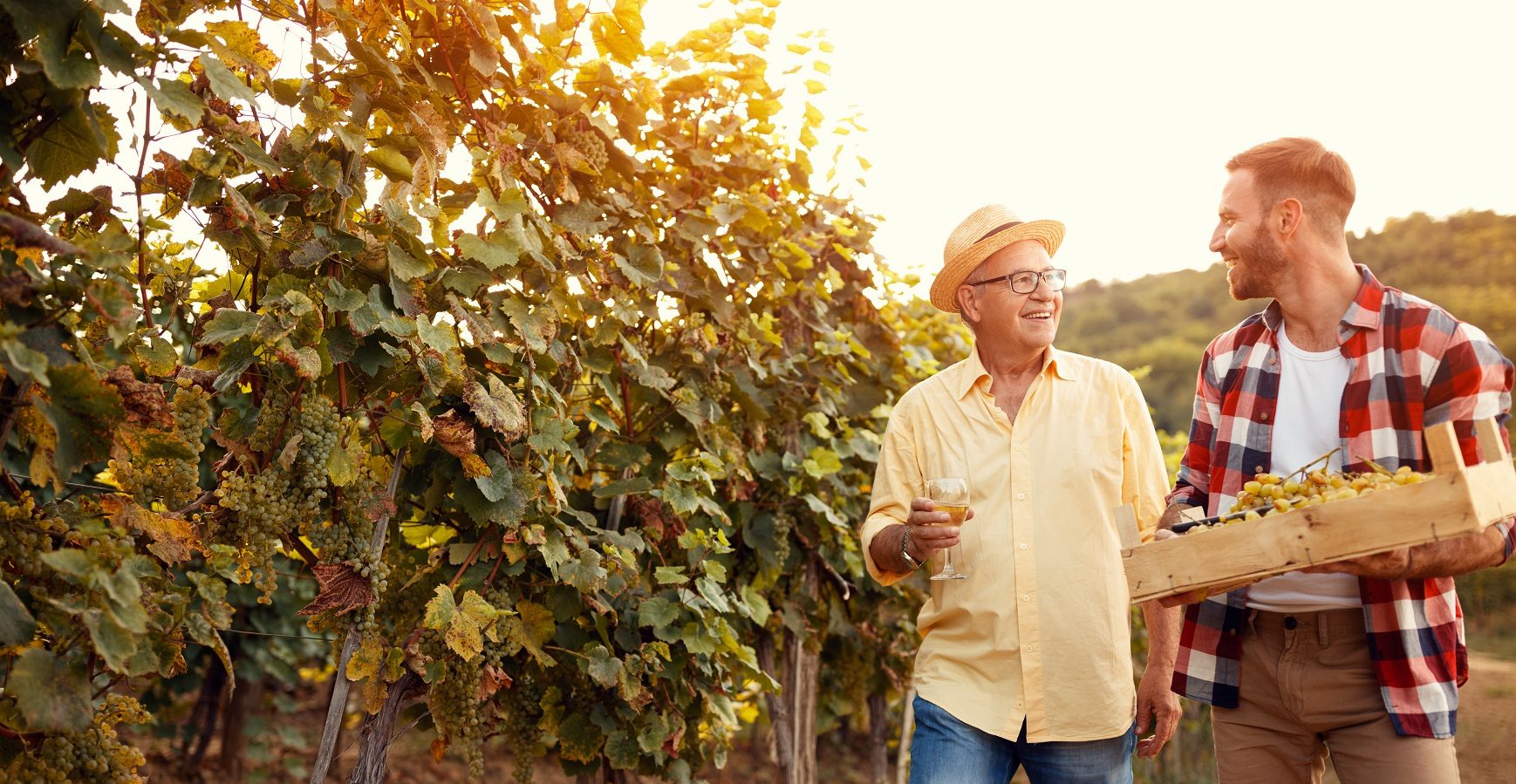Winemaking is a profession which often involves multiple generations of families, with skills being passed down from parent to child, and farms and wineries being transferred from family member to family member as current winemakers and business owners leave the land or business to the next generation.
For winemakers and winery owners, an early plan for and regular reviews of business and personal succession planning is integral to ensuring the successful transition of the family business and properties.
In particular, families involved in the wine industry should be aware of the availability of concessions and grants for young farmers who may be seeking to take control of ownership of family farms or business operations from their parents or grandparents. Understanding some of these available concessions and exemptions can assist families plan effectively for their future today.
Thinking about farm and winery succession planning
There are a number of questions you should ask yourself when considering succession planning, whether you are a current winemaker or business owner, or are part of the next generation of winemakers or business owners:
1. How is the current business and farm held and operated currently?
The assets of vineyards and wineries can be held in a myriad of different structures, including personal names, companies and trusts depending on the personal circumstances of the family. Some families for example hold real property in personal names but the business and farm operation assets in a company (for limited liability purposes), others may hold everything in a single company or trust structure, in separate land and farm trusts, or even through a self-managed superannuation fund.
It is important that a family regularly reviews and, if required, makes changes to its structures to ensure that the business and farm structures provide for practical management now, while also providing for the best mechanism for succession in the future.
Where there are related parties you should also be putting in place or reviewing the agreements between these parties. For example, where a family business entity operates a winery on property owned by a land trust, there should be a lease or licence agreement in place between these two entities to detail this arrangement.
Considerations of this nature do not just include the main farm property and business, but all the moving parts which are required for the successful operation of your vineyard and/or winery. Liquor licences for restaurants or cellar doors, trademarks and intellectual property for wine labels, water rights for vineyards, farm machinery, and leases, licences and contracts may all be held in different names, be it personal, company or trust names. These parts are essential to a business and farm operation, and it is important to consider the practical implications of how they are held, both for business and also personal succession planning.
2. Which family members are involved in the business?
This may be family members working on the farm or in the business (whether as employees or otherwise) and also as controllers of the entities which own or operate the farm and business.
Business and personal succession involve consideration of the expectations of these family members in connection with current or future business and farm succession, as well as family members who are not currently part of the farm or business. Consideration should also be had to future plans of family members, for example the purchase of their own farming properties, and how any overall family succession planning may impact a young farmer’s own future plans.
3. Is there a plan in place for the future succession of the farm and business, or should one be put in place?
This plan may involve the gradual transfer of control to the next generation of family winemakers and business owners, as the current winemakers/business owners reach retirement age, or as part of the current winemakers/business owner’s estate planning, with control to transfer after death.
Consideration should be had to whether a succession plan is discussed and communicated with all members of a family, whether or not the individuals are involved in the business or not. Clear communication can assist everyone to understand how and why a succession plan has been structured will and ensure there are no surprises for family members in the future. This can help decease the risks of dispute between family members (in particular between children involved in the farm /business and those who are not involved) down the track.
4. Should my advisors be involved in this planning?
It is not just family members who should be involved in discussions around succession planning, your advisors will play an important role in collectively advising you how best to structure your business and personal assets, for the greatest benefit now and in the future.
In some cases, upon review it may be determined that your family’s current succession planning needs have changed (due to changes in family structure or children growing up and entering the family business). Financial and legal advisors can assist you to identify where these changes may be required, through regular reviews.
Depending on how the farm and business assets are held, there may be additional options for a young farmer to become involved in the succession planning of the business, through being appointed as a joint director of a company or joint trustee of a farming or land trust alongside a parent or grandparent.
Such appointment will permit greater involvement in the business by the next generation, as well as simpler transition of ownership and control of the farm and business in the future.
Find out more about the concessions and grants that may be available to you in Wine: A Family Affair, Part Two, published next week.











